
Good morning. It’s Tuesday, Aug. 20.
- UC vows zero tolerance for protest encampments.
- San Francisco clears tents but not homeless people.
- And Petaluma’s divisive bathtub sculpture comes to life.
Statewide
1.
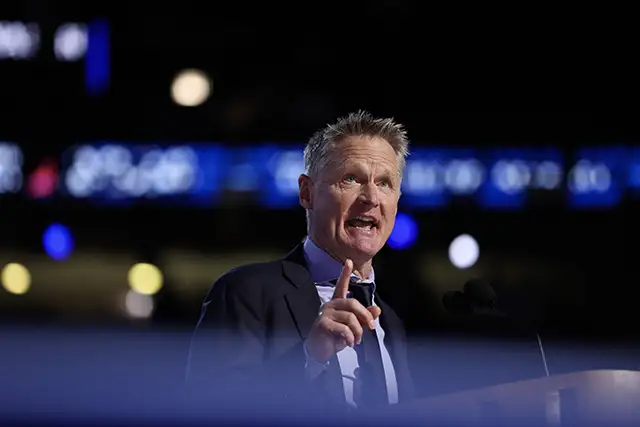
Takeaways from Day 1 of the Democratic National Convention in Chicago on Monday:
- President Biden gave an emotional speech, insisting he held no grudge over being pushed aside. “Selecting Kamala [Harris] was the very first decision I made when I became the nominee, and it was the best decision I made my whole career,” he said. L.A. Times | Politico
- Hillary Clinton said while she couldn’t shatter “that highest and hardest glass ceiling” in 2016, Harris would. “My friends, the future is here,” she said. “I wish my mother and Kamala’s mother could see us. They would say, ‘Keep going.’” Politico | N.Y. Times
- Steve Kerr returned to the arena where he clinched the 1997 Chicago Bulls championship to thunderous applause. He invoked one of Steph Curry’s signature gestures, resting his head on his hands. After the results are tallied, Kerr said, “we can tell Donald Trump, ‘night night.’” S.F. Chronicle
2.
After antiwar protests roiled many UC campuses in the spring, the system president, Michael Drake, issued new rules on Monday for the fall session: no encampments, no masking to conceal identity, and no blocking paths. The no-tolerance approach contrasts with the one taken by UCLA, where officials allowed campers on the condition that things remained peaceful. What followed were more than 200 arrests, $10.4 million in policing and cleanup costs, and a successful lawsuit against the school. L.A. Times | EdSource
- Court opinions rendered in recent weeks have been clear, wrote David French: “This year, there cannot be a repeat of the antisemitic harassment we saw on all too many college campuses over the last year.” N.Y. Times
3.
State lawmakers and tech leaders appear poised to announce a deal that would commit Google to funding California newsrooms over the next five years, reports said. The agreement supplants proposed legislation that would have required companies to pay “journalism usage” fees. Instead, Google’s annual contribution to California newsrooms would amount to less than half the $74 million sum it agreed to award Canadian newsrooms. Matt Pearce, a labor leader, denounced the plan, calling it “a ratification of Google’s monopoly power over our newsrooms.” Politico | KCRA
4.
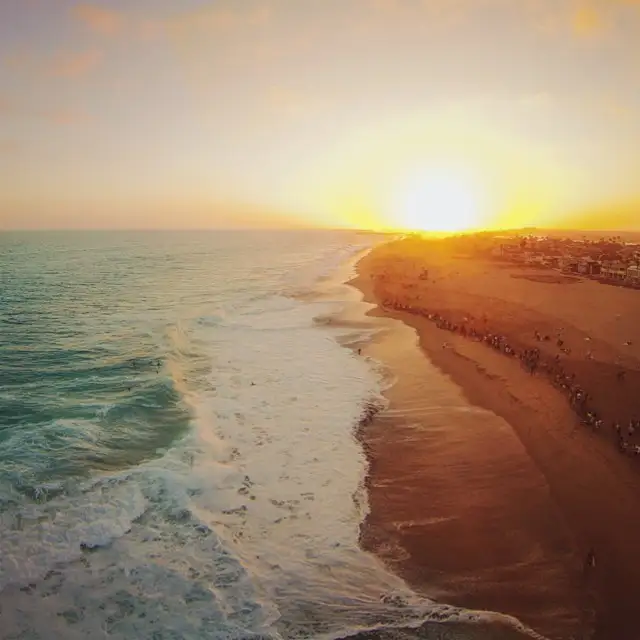
Housing advocates hoped that 2024 would be the year that they cracked the California coast. In the spring, Democratic lawmakers introduced a series of bills to make it easier to build along the shore. But months later, those measures have now either been killed or watered down to the point of uselessness. “Californians really treasure their coast and they feel very strongly about protecting it,” said Sarah Christie, the Coastal Commission’s legislative affairs director. CalMatters
5.
When California enacted a law requiring roomier pig cages in July of 2023, industry groups warned of bacon shortages and sky-high prices. Fears of shortages have proven overblown, an analysis showed. But Californians are paying more for bacon: about $7.75 a pound in July, 2024, up roughly 75 cents from 2022. The fight is not over: Congressional Republicans are pushing a farm bill that would nullify California’s law, putting pigs back in cages barely larger than their bodies. Wall Street Journal
Northern California
6.
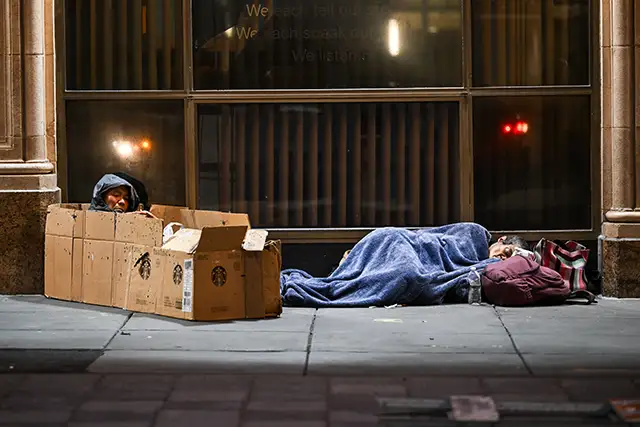
More than two weeks into San Francisco’s crackdown on homeless encampments, there are now fewer tents crowding the sidewalks. But homeless people have simply spread out, shuffling from place to place with nowhere to lay their head, business owners and neighbors say. “It looks a lot cleaner and less visible,” said Christian Martin, executive director of SoMa West Community Benefit District. But the people remain, he added, “just not the tent around them.” KQED
- San Francisco’s encampment sweeps, in pictures. 👉 KQED
7.
After a young woman’s fatal fall at Yosemite’s Half Dome on July 13, the national park has declined to comment on the risks posed by the rock’s rickety cable system. The issue is not new. Columnist Marek Warszawski said Yosemite officials have refused to consider adding sturdier footholds because of a 60-year-old decree to minimize “the imprint of man’s work” in wilderness areas. “But there’s no real reason, besides bureaucratic stubbornness, why the Half Dome cables need to be so dangerous. It’s a wonder more people haven’t died.” Sacramento Bee
8.
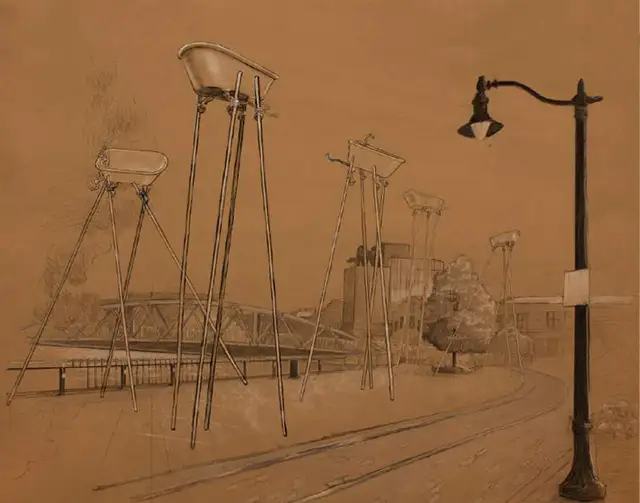
When Petaluma leaders proposed a public art project in 2018 that would feature bathtubs atop stilts along the city’s waterfront, they faced a wave of community backlash. Six years and a few compromises later, “Fine Balance” by the sculptor Brian Goggin is now finally coming to life. Despite the rancor and threats of vandalism on social media, passersby have been largely supportive, Goggin said. “Most people are nice.” The Argus-Courier has photos.
9.
Webber Lake, nestled in a high mountain valley just north of Truckee, was privately held for more than a century before opening to the public in 2017. First-time visitors were said to be astonished by its beauty. “Some are shocked that they haven’t heard of it,” the outdoorsman Tom Stienstra wrote at the time. In the years since, Webber Lake has become the place that locals go to escape tourists. SFGATE
Southern California
10.
San Bernardino, home to some of the nation’s dirtiest air, has unveiled the first self-powered, zero-emission passenger train in the U.S. The $20-million Zero Emission Multiple Unit, or ZEMU, is propelled by hybrid hydrogen and battery technology and emits only water vapor, echoed in its blue-and-white droplet design. Officials said they hope to add more of the trains throughout the city’s commuter rail system. L.A. Times | Victorville Daily Press
11.
Last week, Starbucks abruptly ousted its chief executive and replaced him with Brian Niccol, the chief executive of Chipotle Mexican Grill. But Niccol didn’t want to leave his home in Newport Beach. So, in an unusual arrangement, Starbucks is letting him work from a small office in Southern California while commuting to the headquarters in Seattle via corporate jet. Wall Street Journal
12.
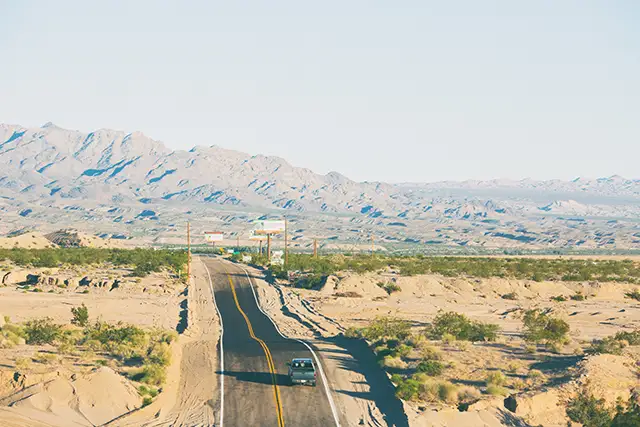
“We think of Route 66 as a quintessentially American experience, but people often forget that nearly half of it is on land that was once Mexico.”
Gustavo Arellano wrote an appreciation of what John Steinbeck dubbed “the Mother Road,” where many of the old Mexican diners are still open — and still delicious. Wildsam Magazine
I count on word of mouth to grow the California Sun. Please consider sharing it with a friend. Send them here.
Thanks for reading!
The California Sun is written by Mike McPhate, a former California correspondent for the New York Times.
Make a one-time contribution to the California Sun.
Give a subscription as a gift.
Get a California Sun T-shirt, phone case, hat, hoodie, or tote.
Forward this email to a friend.
Click here to stop delivery, and here to update your billing information. To change your email address please email me: mike@californiasun.co. (Note: Unsubscribing here does not cancel payments. To do that click here.)
The California Sun, PO Box 6868, Los Osos, CA 93412
Wake up to must-read news from around the Golden State delivered to your inbox each morning.
